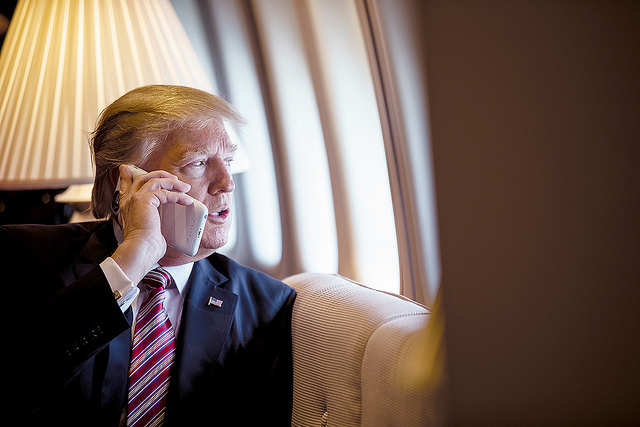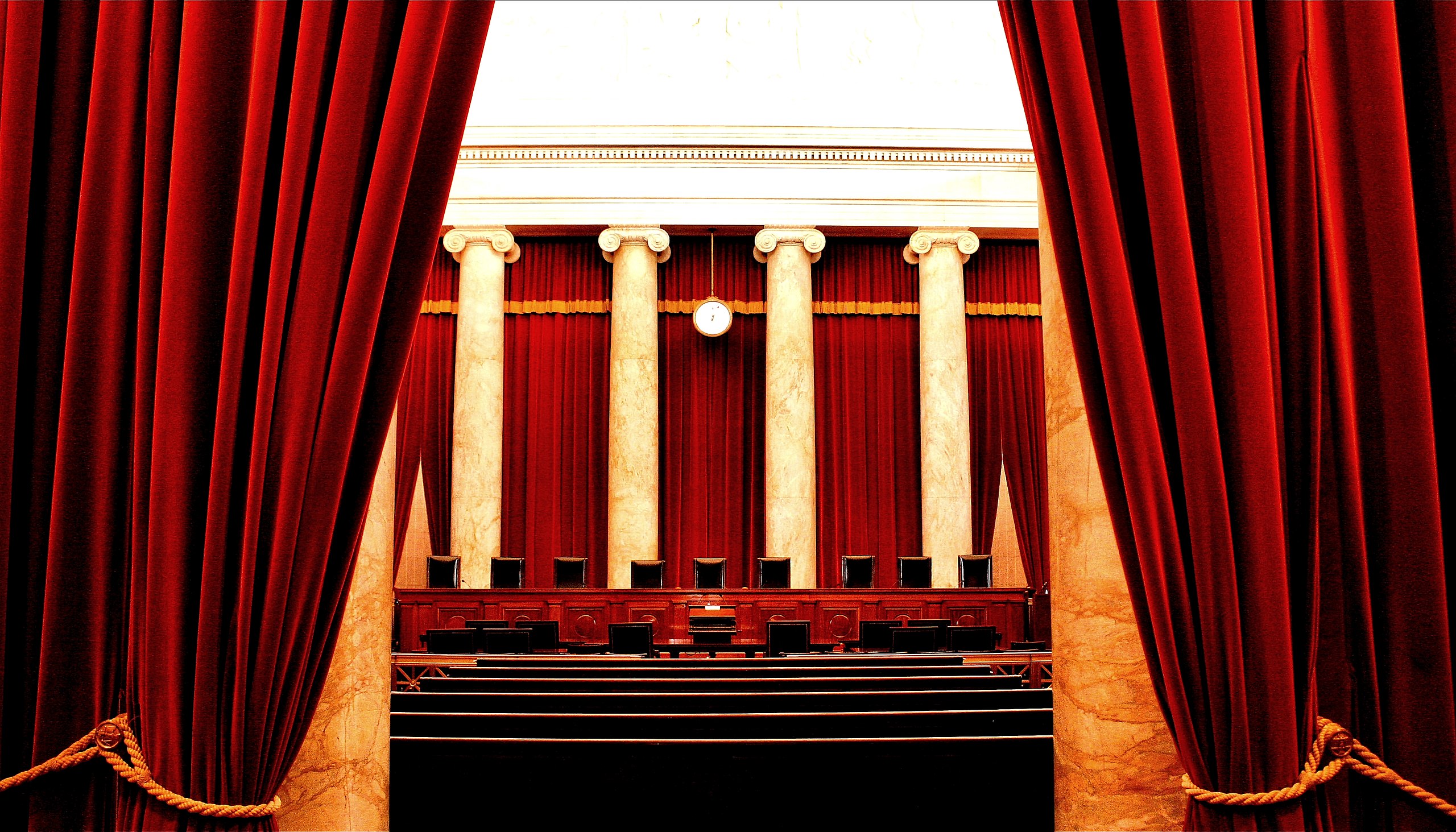Donald Trump, Twitter and Presidential Power to Interpret the Law for the Executive Branch
The president’s former attorney Michael Cohen pleaded guilty Tuesday to several federal criminal violations, including making certain unlawful campaign contributions. The case was brought by the United States Attorney’s Office for the Southern District of New York. That office is part of the executive branch, and the president is the head of that branch.

Published by The Lawfare Institute
in Cooperation With

The president’s former attorney Michael Cohen pleaded guilty Tuesday to several federal criminal violations, including making certain unlawful campaign contributions. The case was brought by the United States Attorney’s Office for the Southern District of New York. That office is part of the executive branch, and the president is the head of that branch.
The president tweeted this the next day: “Michael Cohen plead guilty to two counts of campaign finance violations that are not a crime.” When I read that tweet, I was immediately reminded of the fact that under the Constitution, the president “shall take care that the laws be faithfully executed.” See Article II, section 3. This is an obligation and a directive to the president, not a choice.
I was also reminded of the March 2004 crisis over reauthorization of the Stellar Wind program by President George W. Bush. At that time, the Justice Department determined that it could not support reauthorization of the program. In order for it to continue without the support and approval of then-Acting Attorney General Jim Comey, President Bush had to make his own determination about the program’s legality. Even though Bush is not a lawyer, he did so. That action was completely within his authority as president. As a joint report by several inspectors general later stated, Jack Goldsmith, who was assistant attorney general for the Office of Legal Counsel (OLC) at the time, sent
a one-page memorandum . . . to Comey in which Goldsmith explained that the President, as Commander-in-Chief and Chief Executive with the constitutional duty to “take care that the laws [be] faithfully executed,” made a determination that [Stellar Wind], as practiced, was lawful. Goldsmith concluded that this determination was binding on the entire Executive Branch, including Comey in his exercise of the powers of the Attorney General.
A short time later, then-White House Counsel Alberto Gonzalez similarly stated that, “While the President was, and remains, interested in any thoughts the Department of Justice may have on alternative ways to achieve effectively the goals of the activities authorized by the Presidential Authorization of March 11, 2004, the President has addressed definitively for the Executive Branch in the Presidential Authorization the interpretation of the law.” (IGs Report at pages 47-48.)
So, what to make of the president’s tweet that he does not think that what Michael Cohen did was a crime? Is that a legal determination by the president that is binding on the executive branch, including the U.S. attorney’s office? Are government attorneys now precluded from prosecuting anyone else who might have been involved in this conduct, including the president himself? Is the FBI precluded from even investigating something that the president says is not a crime? Does the U.S. attorney’s office have to move to allow Cohen to withdraw his guilty plea and have the court dismiss the information?
Or will everyone in the Department of Justice simply ignore the president’s tweet? To my mind, that is the most likely outcome here. The Justice Department is likely to assess that whatever it is, the tweet is not a legal determination by the president and is not binding on the agency. But what does that say about the functioning of the executive branch today? What are the long-term implications for the department of simply ignoring the president? What does that mean for the rule of law in the United States?
Jack Goldsmith recently wrote about several essentially unreviewable powers of the president that he could use to thwart further inquiry into various matters under investigation, including the pardon power; the power to fire subordinate officials, including Special Counsel Robert Mueller; and the power to revoke or withhold security clearances. But the president also has the power to make legal determinations that are binding on the entire executive branch. To my knowledge, this presidential power has been used rarely. But it exists, and it is another way the president could take important actions that would significantly impact the course of the various investigations that are underway. Stated differently, what if the president stopped tweeting and instead issued clear legal determinations that he specifically said are binding on the executive branch, including U.S. attorney’s offices and the Special Counsel’s Office?
We are certainly in uncharted territory here, and there is no law book or precedent that can readily provide guidance to decision-makers who must figure out what to do under these extraordinary circumstances in addressing—or ignoring—statements of the chief executive on matters related directly to the constitutional duties they are fulfilling.





